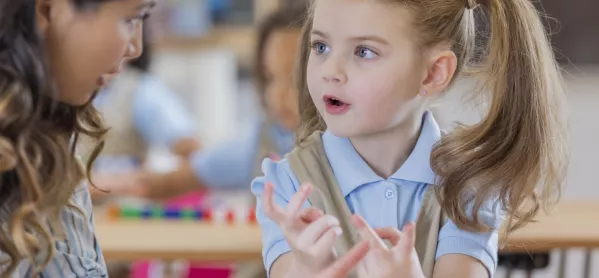What if we spent catch-up money on more teachers?

This government cares about education, so we’re told - and it is currently trying to prove it by floating ideas about a longer school day (with the spectre of shorter holidays looming ominously behind it) in order to help students catch up after Covid lockdowns.
This will all appeal greatly to people who don’t like children (keeps them busy for longer) and don’t like teachers, either (what do they need with all those holidays anyway?).
But, as a teacher, it’s pretty frustrating to see, and not only because it feels like yet another kicking in a year in which we’ve been something of an educational piñata - ignored, criticised, left to pick up the pieces of shoddy last-minute planning too many times.
We all agree that the impact of this miserable year on our children has been tough. We all agree that simply returning to business as usual and hoping for the best isn’t enough.
Coronavirus: Some benefits to lockdown teaching
But there have been some benefits to lockdown teaching - and maybe they hold the answers when it comes to making our new life, post-Covid, better than the old.
My school - whatever the tabloid press may think - isn’t closed right now, but partially open. And when I’m not setting work online, I’m physically in school with key workers’ children.
I’m teaching a “class” of between 10 and 15 children - instead of the usual 30-plus - so all of these students get more of my time. We aren’t sharing school facilities with hundreds of other students, so we can get out into the wildlife area or the hall whenever we like.
Children with additional needs have vast amounts of one-to-one attention - and the little cliques and factions of a normal-sized class have largely been dropped, in favour of getting along as one big, happy gang.
I feel a bit like Maria in The Sound of Music much of the time, leading the Von Trapp children on a joyful discovery of the world. And, for some of the children who might get lost in a bigger class, there have been some startling learning gains.
It’s hard not to wonder then, about a scenario where this might be my teaching experience all of the time: the norm rather than the exception.
The promised land of smaller classes
In the UK, that promised land of smaller class sizes and better resources really only exists in private education right now. But lockdown has made me wonder about a future where all children reap the benefits that currently only a parent who happens to be a key worker - or who can afford thousands of pounds’ worth of school fees - can provide.
Politicians frequently pay lip service to learning the lessons of lockdown, on everything from climate change to mental health. But a really radical lesson would be to recognise the fact that we could do so much more for children - including making up the months of lost learning in 2020 - if we committed to smaller class sizes and better resourcing across the board.
It would certainly be an order of magnitude more useful than making the poor things work into the evenings, when they should be playing and seeing their friends.
I know, I know: there are no magic money trees (or, at least, not the sort that help to fund education and the NHS properly). But if the government can find the cash for after-school and holiday classes, surely we could spend that instead on more teachers during the normal school day?
There is a vast army of NQTs and supply teachers who could be brought on board, too. Just imagine the progress these teachers could help children to make, if we no longer had to split ourselves into 30 meagre portions.
Of course, we’d still need somewhere to put these new classes. But the oncoming mental health storm requires us to think radically in more ways than one. We could do more outside learning over the next six months, taking it in turns to mitigate space issues and rebuild children’s resilience and connection. Schools are good at addressing practical challenges in creative ways - we have to be.
Even if, in some cases, these smaller classes were still sharing the same physical space, double the teacher expertise would still mean more pupils benefitting from this. Crucially, it’s having time to really engage with children individually that I’ve found most beneficial during lockdown teaching.
The bottom line is that wilfully pushing an agenda of longer hours simply misses the point. Children do need more time - but plonking them down in school buildings and leaving them there for hours on end won’t work.
Finding clever ways to give them more of their teacher’s expertise and attention just might.
Kate Townshend is a teacher in Gloucestershire. She tweets as @_KateTownshend
You need a Tes subscription to read this article
Subscribe now to read this article and get other subscriber-only content:
- Unlimited access to all Tes magazine content
- Exclusive subscriber-only stories
- Award-winning email newsletters
Already a subscriber? Log in
You need a subscription to read this article
Subscribe now to read this article and get other subscriber-only content, including:
- Unlimited access to all Tes magazine content
- Exclusive subscriber-only stories
- Award-winning email newsletters